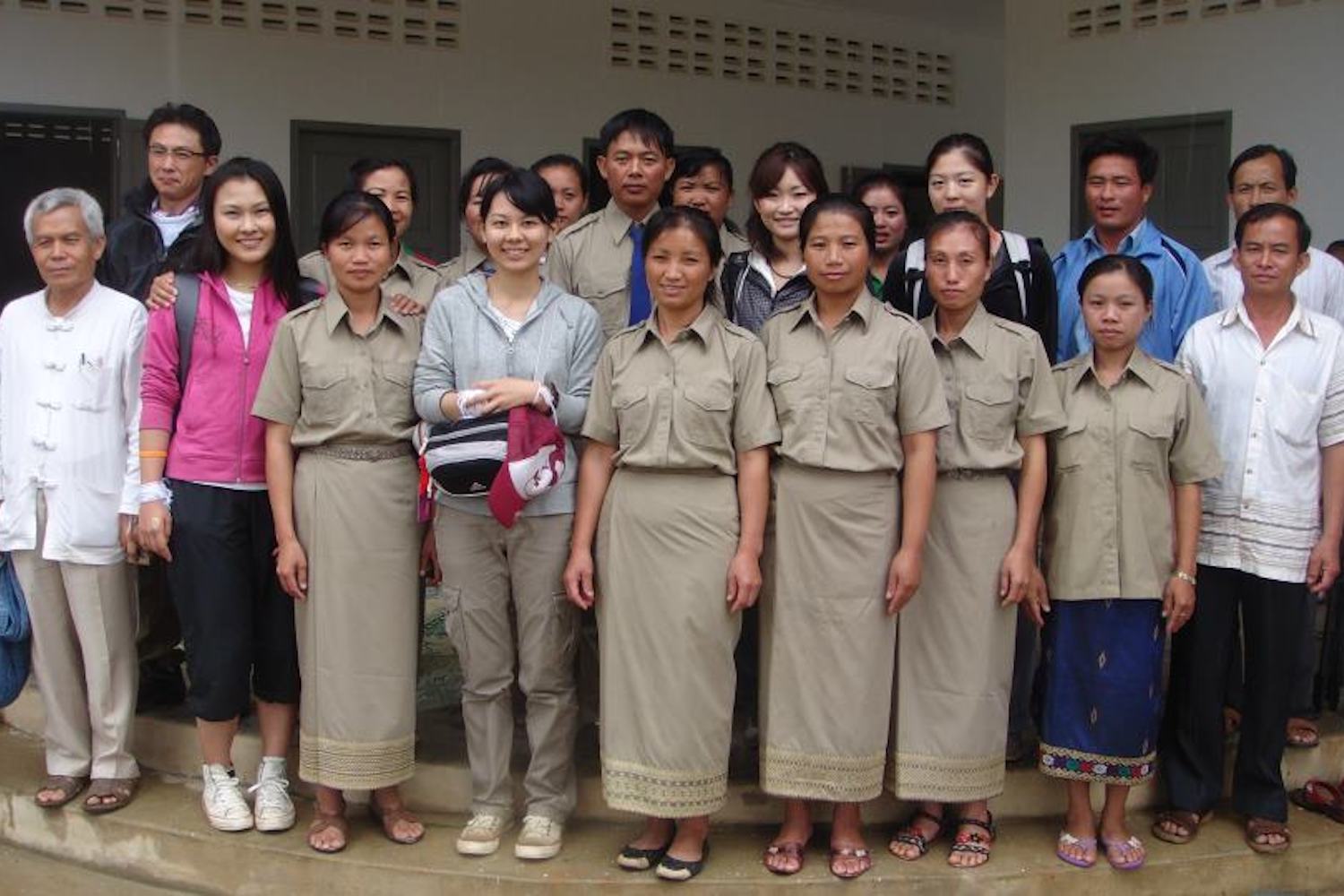Bangkok Post: 06 September 2013
Pratubjit Neelapaijit is coping with the uncertain fate of her father by speaking out for the disappeared

Pratubjit Neelapaijit considers herself part of Bangkok’s middle class through and through. Growing up listening to her father, the disappeared lawyer Somchai Neelapaijit, and mother Angkhana discussing human rights violations and social issues, the young Pratubjit felt compassionate yet detached.
But life is a series of unexpected incidents – despite her lack of inclination at a younger age, Pratubjit has found herself engaging in activism.
“I was not into human rights issues much when I was a kid,” she said. “Partly I always thought that I was in the middle class in Bangkok and human rights violations happened with ethnic minorities, like hilltribe people and farmers. I believed I was middle class, so this type of problem would not happen to me.”
Her assurance of an easy life dissolved a little over nine years ago when her famous human rights lawyer father disappeared on March 12. At that time, she was a senior at Chulalongkorn University, studying for final exams.
“During the first year after he disappeared, I decided not to be happy… not take part in any ceremonial events. Suffering is the means to pay my father respect. Mourning is the way that I hold on to memories of him,” she said.
Pratubjit, nicknamed “Baen”, is now 30 years old and has attained her dream of becoming a teacher – she lectures at the Institution of Human Rights and Peace Studies at Mahidol University.
“There is a saying that you cannot truly understand the meaning of human rights until your rights are violated. I think I understand the meaning of it now,” she said.
Last year, Pratubjit made her advocacy debut by joining “Sombath Somphone & Beyond”, a campaign to put pressure on the Lao government to follow up on the abduction of the Ramon Magsaysay Award recipient and community development worker.
Speaking against the construction of dams on the Mekong River, Sombath was last seen in Vientiane on Dec 15 in a car which was stopped by police.
“I feel emotionally connected with this case,” said Pratubjit, whose own father was also last seen in a car. Activism got under her skin in an unusual way. After a year of mourning, Pratubjit started to think of her father’s case in terms of political science.
“As a student of political science, I was trained to think in terms of political motivation. I realised the perpetrators want to silence my father and want us to live in fear then retreat into silence. So I decided to resist,” she said.
Then she accompanied her mother to court, police stations and events. She focused on the state’s violence against dissident citizens. She wrote her doctoral thesis on justice and conflicts in the Tak Bai incident – a 2004 event during the south Thailand insurgency which ended with seven protesters being shot dead by security forces and 78 others dying of suffocation in a truck while being transported from the protest site to a military camp.
What she has learned is dismal for the whole country. What happened to her father is a form of violence in Thai politics that relies on intimidation and force to muzzle different and opposing opinions.
But what shocked her most is the attitude towards victims.
“Thai society still believes that those who are abducted or kidnapped are bad people and they got what they deserved,” Pratubjit said. For example, her father was portrayed as a “lawyer for thieves”. Somchai had represented controversial defendants – southern separatists, defendants in southern restive provinces and alleged drug dealers who claimed they were framed by polices during the state campaign against drugs. His clients claimed to have been framed or tortured by state officers.
The method of intimidation uses obscurity and mystery to enable the state to reconstruct the story and narrative in its own way.
“Most victims are accused of having personal problems. In my case, a few days after my father disappeared, former prime minister Thaksin Shinawatra told the media that my father had an argument with my with my mother and then he ran away from home,” Pratubjit said.
Pratubjit has learned that the only way to fight back is to keep the memory and story of the abducted victim alive. In the nine years that have passed, her mother Angkhana has never stopped pursuing the case, continuously talking to the media and communicating with society about her husband. Because of these efforts, the name Somchai Neelapaijit has been recorded and recognised locally and aboard as an example of enforced disappearance in Thailand. Pratubjit encouraged families of other victims to speak up and tell their stories.
“It takes a lot of energy and time to fight and I understand not everyone can do it. But, I will say at least that the best thing that the families of forcibly disappeared victims can do is to lead a good life. For children, they must finish school, get an education and find a position in society,” she said.
Somchai’s wife and five children are now making their mark. Not only is his wife a famous rights activist, Pratubjit and three of her siblings now work in the academic field, plus her oldest sister Sudpradtana Neelapaijit is a judge in Yala province.
“We simply have to fight by showing those perpetrators that they cannot achieve their aim by silencing us. They might be able to take away family members and make them disappear, but they cannot make us disappear and die along with those victims,” she said.
